Part 1 : Yuji Naka (Sonic Team leader and PSO producer) looks back at Phantasy Star Online, 20 years later
The web page from which the original interview is taken can be found here
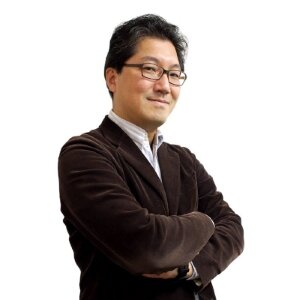 As the producer for Phantasy Star Online, based on the work you’d done in video games leading up to that point — Sonic the Hedgehog, Nights Into Dreams, etc. — it was unlike anything you’d ever taken on. What were the biggest challenges?
As the producer for Phantasy Star Online, based on the work you’d done in video games leading up to that point — Sonic the Hedgehog, Nights Into Dreams, etc. — it was unlike anything you’d ever taken on. What were the biggest challenges?
Yuji Naka: I recall that the greatest hurdle was trying to figure out how to get people from around the world to play online in an age where the internet was still not readily available everywhere. When we found out that even with the use of optical fiber, information only travelled at seven and a half times around the world per second, we knew that we could not build games the normal way. So, we wanted to understand this environment better and developed
ChuChu Rocket! first, then we took what we learned to develop
Phantasy Star Online.
Other members of the team have said that you had various ideas that you were adamant about having in the game. What do you recall saying were the absolute must-haves?
I remember that former Sega chairman Isao Okawa said “The internet is the future!” and we strived to create a game which would allow people to have fun playing online. The method of communication was going to be key to the success of the game so, in addition to regular chat, the support for Symbol Chat and Word Select was very high on my list of priorities.
In a way it made a lot of sense for Sonic Team to tackle the challenge of developing PSO, based on your past experience on the original Phantasy Star series on the Master System. PSO didn’t really rely on past series lore or expect fans to have prior exposure to the series, but what did you want to maintain from past games?
I felt it was important to incorporate the fantasy elements into the sci-fi world, so the first thing we did was create the best representation we could of a dragon on Dreamcast. We also incorporated references to prior games for Phantasy Star fans so I think we were able to please both new players and fans of the original series.
How did the development of ChuChu Rocket! help you with the development of PSO? Likewise, what did Sonic Adventure do to help the development of PSO?
ChuChu Rocket! was developed as a puzzle game, but it was also built to help us figure out how to use latency in battles to our advantage, as well as to understand potential gameplay elements in online games. I think the experience that helped the most from working on
Sonic Adventure was breaking the game into parts and perfecting each part before bringing them together.
PSO was developed at a time when networked games didn’t exist on consoles, due to the lack of hard drives, stable and speedy enough internet connections, and methods of communication like voice chat and keyboards. Which of these things was the hardest to overcome, and how did you manage it?
I think the lack of hard drives was the biggest obstacle. This issue was the reason we had to ask consumers to purchase a new disc [
Phantasy Star Online Version 2] in order to fix some bugs in the system. It was an unfortunate situation but I was grateful that the consumers still seemed to enjoy the game despite the issue.
The PSO icon chat system was ingenious, flexible, and fun to use. You could do so much with the editor and only a couple of buttons. What were the design sessions like to develop this system?
When we were making [the icon chat system], we felt that there was something lacking when chatting in just text and were hoping to go beyond just emojis. The whole development team was very surprised with how enthusiastic players were about it. We were expecting some surprises but we were really blown away by the creativity we saw from players.
Symbol Chat, Word Select, and the ability to take screenshots were all features that made PSO an innovative game. Why were you adamant about including these features in the game?
It stemmed from wanting to take advantage of being online and provide a variety of communication methods. The screenshot capture feature was something that I came up with two weeks before the master submission. We were only able to save one screenshot on the VMU [memory card] but I figured it was better to have one than none, so we incorporated it as a hidden command. I’m really glad we did, too. Ideally, I would have come up with it earlier in development but it was something that came to me once development was starting to wind down and I was looking for ways to make the game more fun. This is something that happens a lot in the second half of game development and the crucial thing to consider is which ideas to incorporate and the amount of risk that’s involved [by trying to incorporate new ideas into the game at that late stage].
Many popular Japanese multiplayer action-RPG franchises have emerged in the wake of PSO — Final Fantasy Crystal Chronicles, Monster Hunter, God Eater, etc. — and while some of these have gone on to great success, it feels like no game has properly taken PSO’s baton. PSO even eventually won the game of the year award from the Japan Game Awards. How do you feel about it in hindsight compared to the time when you were developing it?
I was extremely happy to receive the game of the year award. I was happy we were able to materialize chairman Okawa’s vision and to be acknowledged as pioneers of online games [by the industry]. There are many differences between MMOs and multiplayer online games, so it’s hard to compare, but I think that
Final Fantasy XI,
Final Fantasy XIV, and Monster Hunter are great games and I hope that these games will continue to take us further in the realms of online games.
What major compromises did you have to make to the game that you would have liked to have included, but couldn’t for budget, console spec, or scheduling reasons?
What we were unable to include in
PSO, we included it in
Version 2 on Dreamcast and the GameCube versions of
Episode I & II. [The GameCube] versions of the game came with added features, so it was a satisfying experience to be able to make a game where we were able to accomplish everything that we set out to do.
One of the most innovative things about the game was the MAG system, where players had dynamic pets. Raising them to their potential was almost a game in itself. This seems like it was a very complicated system to introduce to an already-complicated, pioneering game like PSO. Who came up with this idea and what was the internal reaction like?
The MAG system was initially supposed to involve a fully fleshed-out, animated pet-like creature, but due to various reasons, we had to limit this pet to an object floating over your shoulder. In early concept presentations of
PSO, we had a monster-like creature that evolved over the progression of the game. If that idea had been greenlit, we might have seen a different type of
PSO game.
PSO won many awards. Considering how many challenges your team faced, was it a relief to see that PSO’s accomplishments were fully recognized by the gaming media and the players?
Yes, I remember that we received a lot of recognition from the overseas media and I was very happy to see that.
Shortly after the release of
PSO, Sega announced the end of Dreamcast and I hoped that the sales of
PSO would help to keep the console alive.
PSO was possible only because of the existence of the Dreamcast hardware. It was regrettable that we literally created a game with the vision of broadcasting a “Dream” and released the game only a month before the announcement of the hardware’s cancellation.
The game has such a unique style and the character designs were so popular that it’s not uncommon to see players in other games, like Final Fantasy XIV, name their characters after PSO classes, like “RAcaseal.” Besides the game quality, how crucial do you feel the character designs were to the success of PSO?
I think the appeal of characters is a reflection of the quality of the gameplay so I think that the fans of the game grew to love the characters as a consequence of enjoying the game. I’m very thankful for that.
Looking back, PSO is now nearly 20 years old. How do you feel about the game in hindsight, and what do you think its legacy is?
I think the biggest impact we had is that we proved that we could make a networked game on a home console. I’ve had many people tell me that they used
PSO as a reference to study networked games. I think that’s something we were able to contribute to the gaming industry.
You had so many landmark hits with Sonic Team, and also many critically acclaimed but perhaps underappreciated games, like Nights, Burning Rangers, and Billy Hatcher. Where would you rank PSO among Sonic Team’s catalog?
I don’t want to rank the titles I’ve worked on since they are all dear to my heart but
PSO would probably come after Sonic and
Nights.
Lastly, obviously you don’t work for Sega now, but a lot of people wish they could still play this game. What would you say to these fans who have loved PSO for so long?
I currently work at Square Enix so please inquire with Sega about a
PSO reboot. Also, please look forward to the next game I’m working on at Square Enix
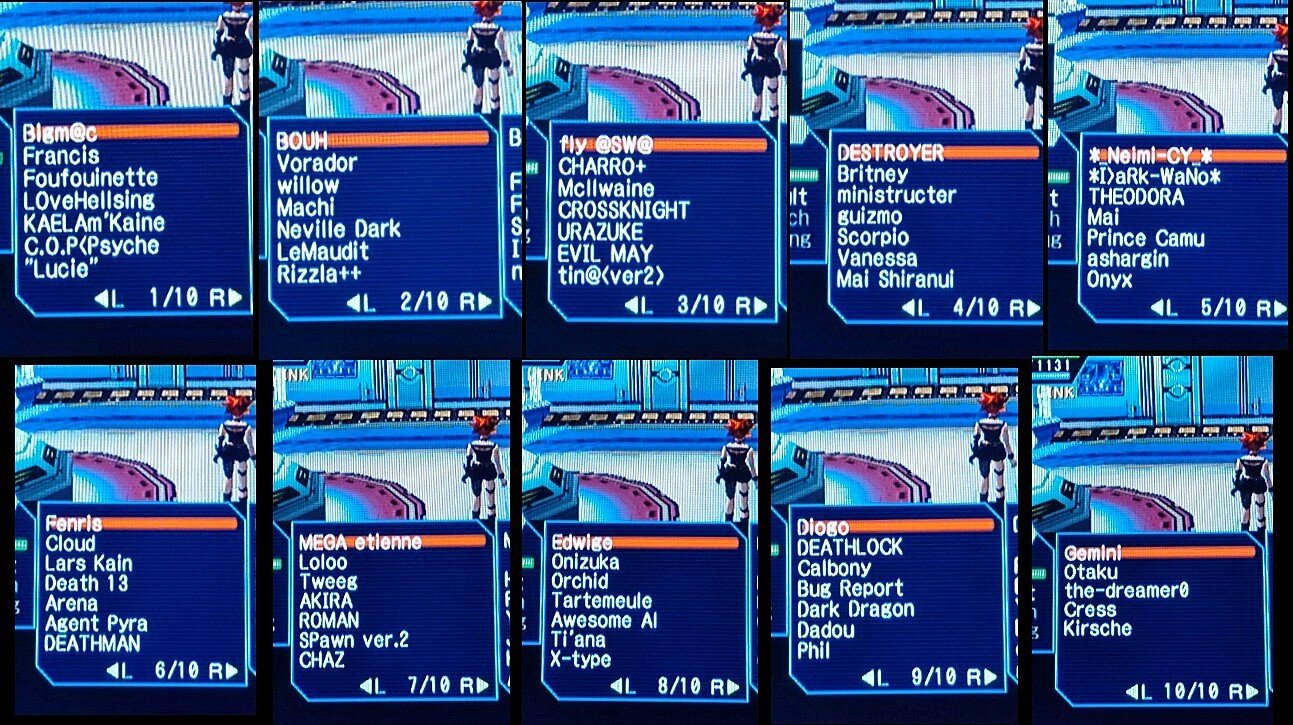
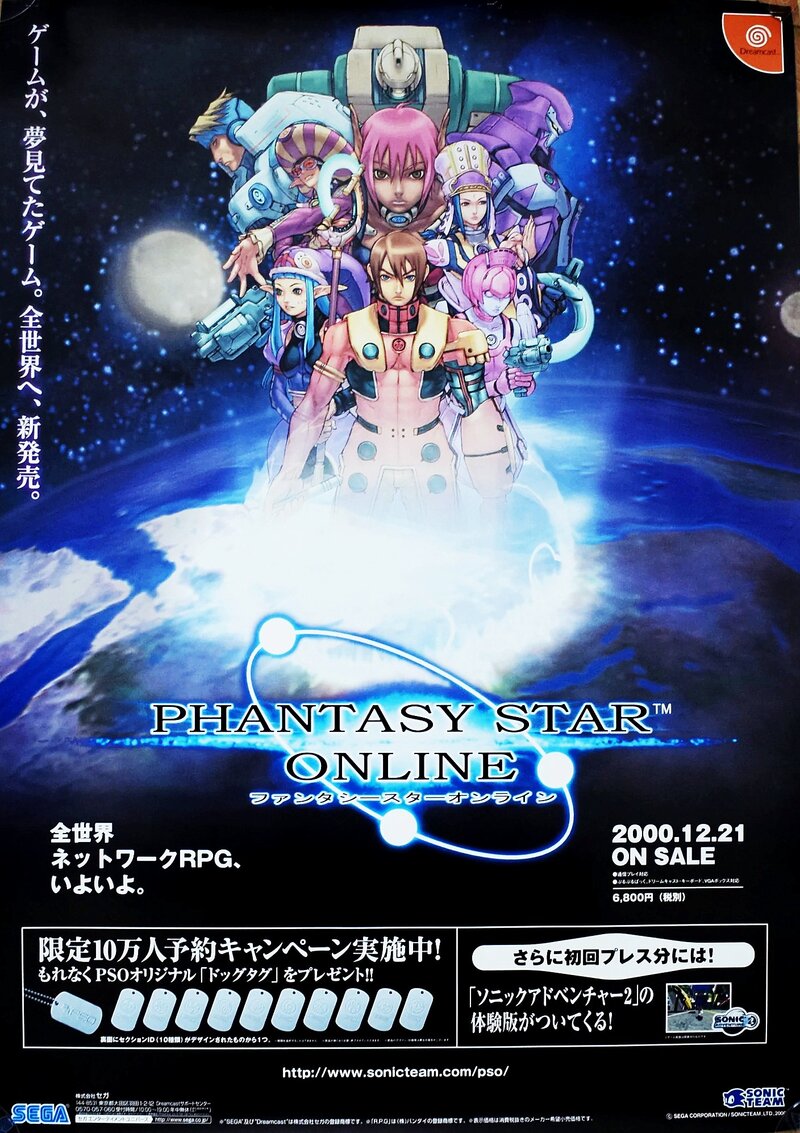
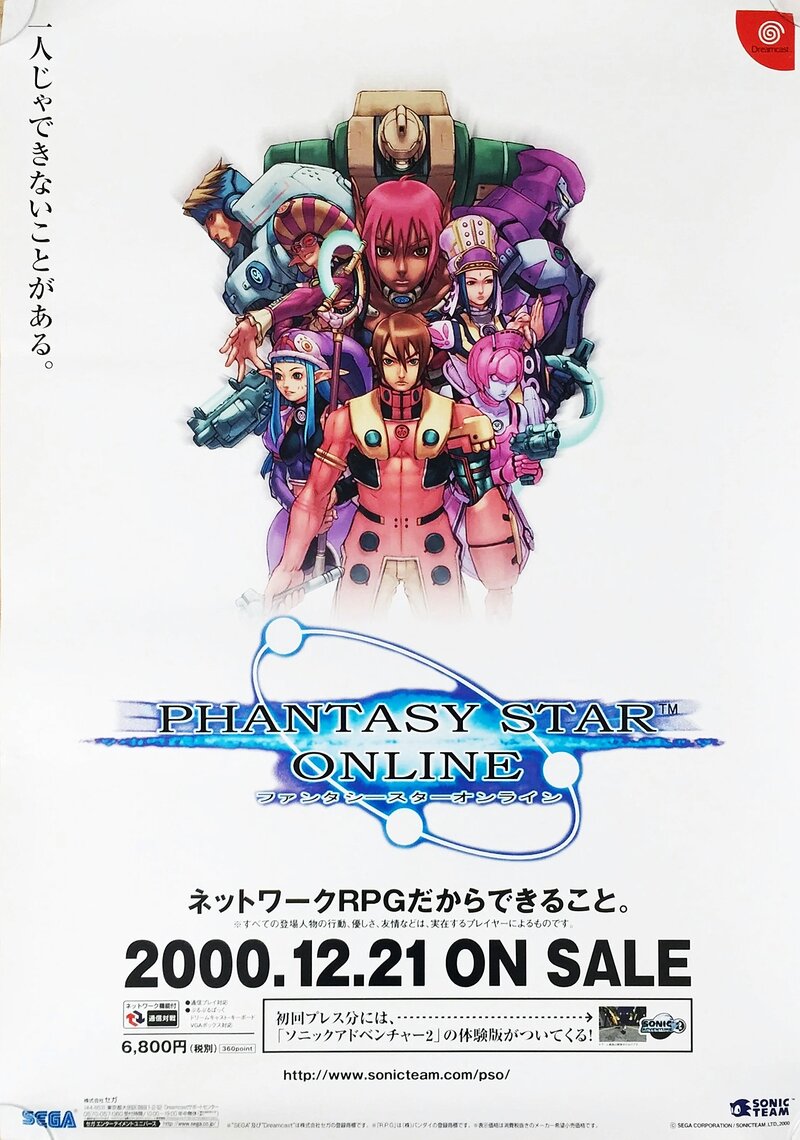
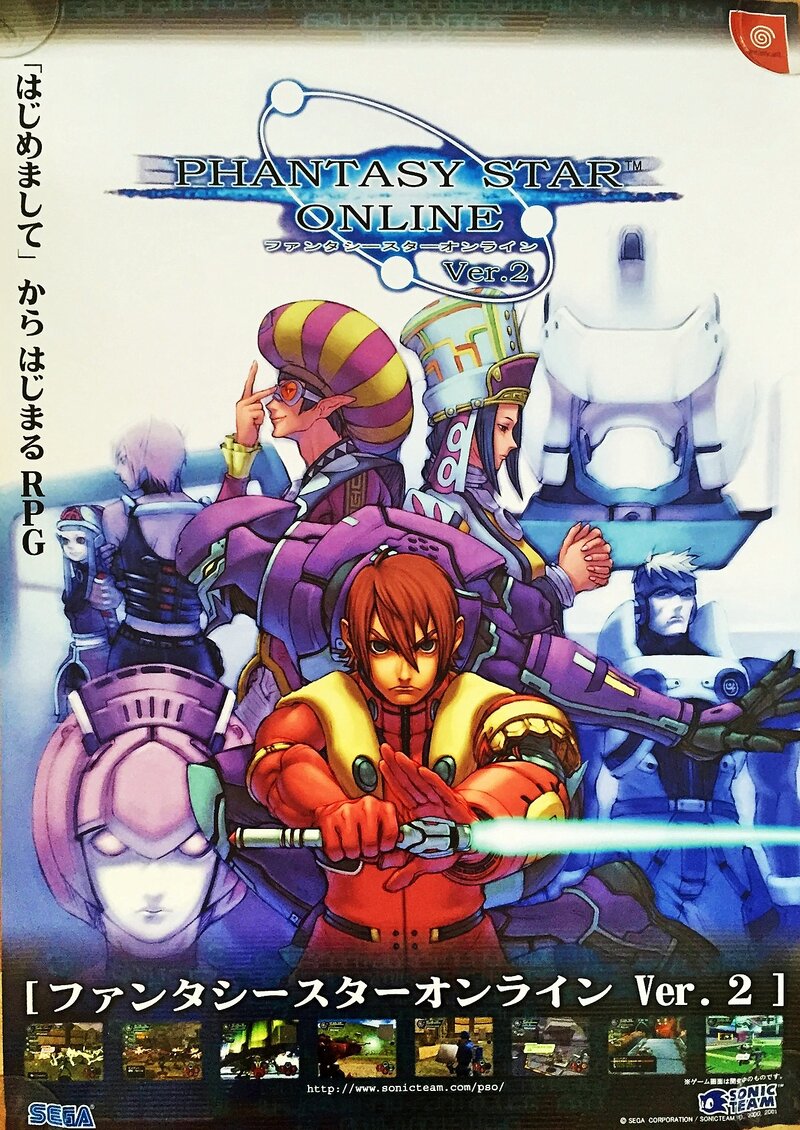
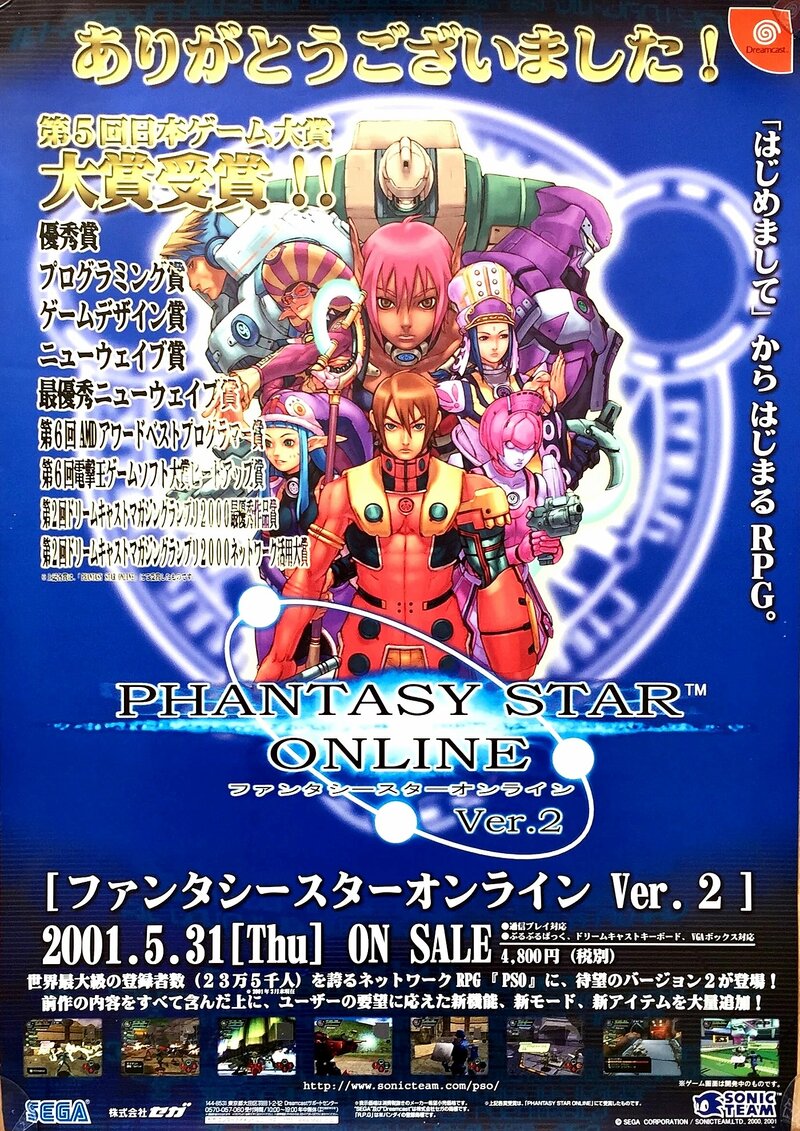
 As the producer for Phantasy Star Online, based on the work you’d done in video games leading up to that point — Sonic the Hedgehog, Nights Into Dreams, etc. — it was unlike anything you’d ever taken on. What were the biggest challenges?
As the producer for Phantasy Star Online, based on the work you’d done in video games leading up to that point — Sonic the Hedgehog, Nights Into Dreams, etc. — it was unlike anything you’d ever taken on. What were the biggest challenges?